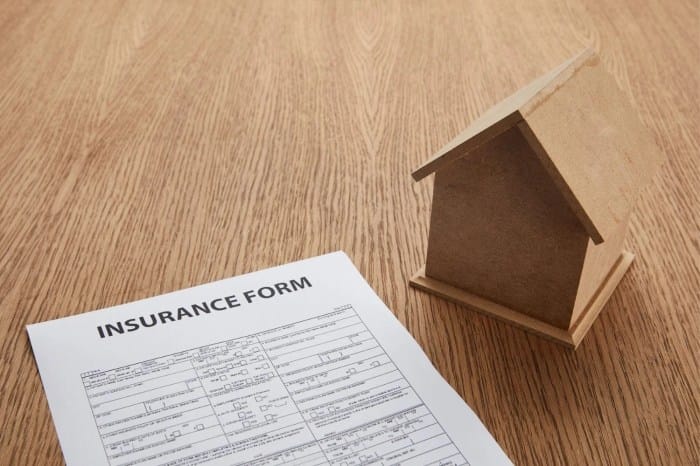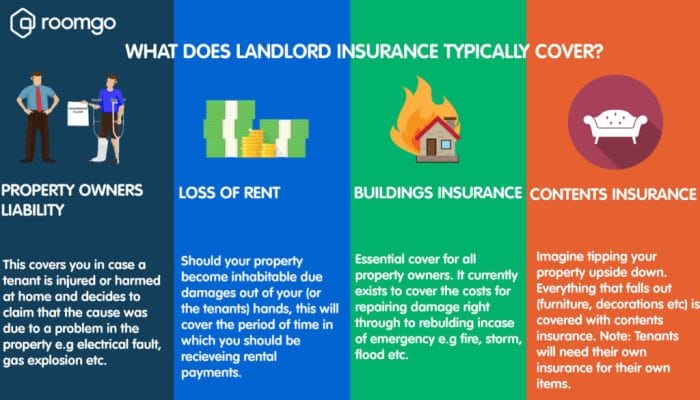As a landlord, securing your rental properties with adequate insurance is crucial, but it doesn’t have to break the bank. Discover practical tips and strategies to save money on landlord insurance without compromising coverage.
From comparing quotes and increasing deductibles to implementing loss prevention measures and maintaining your properties, this comprehensive guide will empower you to make informed decisions and optimize your insurance expenses.
Research and Compare Quotes
To secure the most suitable and cost-effective landlord insurance, it’s crucial to conduct thorough research and compare quotes from multiple providers. By doing so, you can make an informed decision that aligns with your specific needs and budget.
Several factors influence the cost of landlord insurance, including the property’s location, condition, and the level of coverage desired. By carefully evaluating these factors, you can tailor your policy to provide adequate protection without overpaying for unnecessary coverage.
Obtaining Quotes
- Gather Information: Compile essential details about your property, such as its location, size, construction type, and any unique features. Additionally, determine the coverage limits you require, including property damage, liability, and loss of rent.
- Contact Insurance Providers: Reach out to multiple insurance providers, either directly or through an insurance broker, to obtain quotes. Be prepared to provide information about your property and coverage needs.
- Compare Quotes: Carefully review the quotes received, paying attention to the coverage limits, deductibles, and premiums. Ensure that the policy terms and conditions align with your expectations and requirements.
- Consider Factors: Evaluate the factors that influence insurance costs, such as the property’s location, condition, and the level of coverage. By understanding these factors, you can make informed decisions about the coverage you need and the premium you’re willing to pay.
- Consult Professionals: If you have questions or need assistance understanding the quotes or coverage options, consult with an insurance broker or agent. They can provide expert advice and help you find the best policy for your needs.
Increase Deductible

Landlord insurance deductibles are the initial amount you must pay out of pocket before your insurance coverage kicks in. By increasing your deductible, you can often lower your insurance premium. This is because the insurance company is taking on less risk by agreeing to pay for a higher amount of damages.
However, it’s important to set an appropriate deductible that you can afford to pay in the event of a claim. If you set your deductible too high, you may end up paying more out of pocket in the long run.
Tips for Setting an Appropriate Deductible
- Consider your financial situation. How much can you afford to pay out of pocket in the event of a claim?
- Think about the likelihood of filing a claim. If you have a history of filing claims, you may want to consider a lower deductible.
- Get quotes from multiple insurance companies. This will help you compare deductibles and premiums and find the best deal.
Consider Landlord Insurance Bundles

Combining your landlord insurance with other insurance policies, such as home insurance or business insurance, can lead to significant savings. Bundling insurance policies often results in discounted rates, streamlined policy management, and the convenience of dealing with a single insurer for multiple policies.
Types of Bundled Insurance Packages
- Homeowner’s Insurance and Landlord Insurance: Bundling these policies can be advantageous for landlords who own and occupy a portion of their property while renting out the remaining units. This combined policy covers both the owner-occupied and rental portions of the property, offering comprehensive protection.
- Commercial Property Insurance and Landlord Insurance: Landlords who own commercial properties can bundle their commercial property insurance with landlord insurance. This combined policy covers the structure of the commercial building and any rental units within it, providing comprehensive protection for the landlord’s investment.
- Business Insurance and Landlord Insurance: For landlords who operate a business on the same property where they rent out units, bundling business insurance with landlord insurance can be beneficial. This combined policy covers the business operations and the rental units, providing comprehensive protection for both aspects of the property.
Explore Discounts
Uncover savings opportunities by exploring various discounts offered by insurance companies. These reductions can significantly lower your landlord insurance premiums.
Qualifying for these discounts is often straightforward and may involve meeting specific criteria or taking certain actions. Learn how to maximize your savings by understanding the available discounts and how to qualify for them.
Multi-Policy Discount
- Obtain multiple insurance policies, such as homeowners, auto, and landlord insurance, from the same provider.
- By bundling your policies, you can often secure a lower rate on each policy.
Claims-Free Discount
- Maintain a claims-free history with your insurance company.
- Insurance companies reward policyholders who have not filed claims by offering them lower premiums.
Security Features Discount
- Install security features like deadbolts, alarm systems, and smoke detectors in your rental properties.
- These measures demonstrate your commitment to loss prevention, which insurance companies may recognize with lower premiums.
Renewal Discount
- Renew your landlord insurance policy with the same company.
- Loyalty is often rewarded with discounted rates.
Good Tenant Screening Discount
- Implement a rigorous tenant screening process to select responsible and reliable tenants.
- Insurance companies may offer discounts for landlords who demonstrate effective tenant screening practices.
Home Improvement Discount
- Make improvements to your rental properties, such as upgrading electrical systems, plumbing, and roofing.
- These upgrades can reduce the likelihood of claims, leading to potential discounts.
Implement Loss Prevention Measures
Minimizing the risk of incidents and claims can significantly reduce landlord insurance premiums. Taking proactive steps to enhance property security and prevent potential losses is crucial.
Implementing effective loss prevention measures can not only protect your property and tenants but also demonstrate to insurers your commitment to risk management, potentially leading to lower insurance costs.
Security Measures
- Install security systems: Consider installing a comprehensive security system that includes motion sensors, door and window sensors, and a central control panel. These systems can deter intruders and provide early warning of potential break-ins.
- Secure doors and windows: Ensure that all exterior doors and windows are equipped with sturdy locks and deadbolts. Consider installing security bars or window locks for added protection.
- Install outdoor lighting: Well-lit properties are less attractive to potential intruders. Install motion-activated lights around the perimeter of your property to deter nighttime break-ins.
- Maintain landscaping: Keep trees and shrubs trimmed away from windows and doors to reduce hiding spots for intruders. Ensure that the property is well-maintained and free of debris to create a less inviting environment for criminals.
Home Security Systems and Devices
- Surveillance cameras: Installing surveillance cameras around the property can act as a deterrent to potential intruders and provide valuable evidence in case of a break-in.
- Motion-activated alarms: Motion-activated alarms can detect movement and sound an alarm to alert you and your tenants of a potential intrusion.
- Smart home systems: Smart home systems allow you to control and monitor your property remotely. You can arm and disarm security systems, adjust lighting, and receive notifications of suspicious activity.
Maintain the Property

Regular maintenance is the key to preventing costly repairs and keeping your property in good condition. By addressing minor issues promptly, you can avoid more significant problems down the road and save money on insurance premiums.
Here’s a checklist of routine maintenance tasks for landlords:
Inspect the Property Regularly
Conduct regular inspections of the property to identify and address any potential issues. Look for signs of damage, leaks, or wear and tear. Pay attention to the roof, foundation, plumbing, electrical system, and HVAC system.
Address Repairs and Maintenance Promptly
Don’t let minor issues become major problems. When you notice something that needs to be repaired or replaced, take care of it promptly. This will prevent further damage and save you money in the long run.
Maintain the HVAC System
Regularly inspect and maintain the HVAC system to ensure it’s working efficiently. Change the filters monthly, clean the coils, and have the system serviced by a qualified technician once a year.
Maintain the Plumbing System
Check for leaks and clogs in the plumbing system regularly. Repair any leaks promptly and clear any clogs as soon as possible. Also, consider installing water leak detectors to alert you to any potential problems.
Maintain the Electrical System
Inspect the electrical system for any frayed wires, loose connections, or damaged outlets. Have a qualified electrician perform regular maintenance and repairs as needed.
Maintain the Roof and Gutters
Keep the roof and gutters clean and free of debris. Inspect the roof for any signs of damage, such as missing shingles or leaks. Clean the gutters regularly to prevent water damage.
Review the Policy Regularly

As a landlord, staying informed about your insurance policy’s terms, coverage limits, and exclusions is crucial. Regularly reviewing the policy ensures you’re aware of any changes, updates, or adjustments that may impact your coverage. It also allows you to assess if your current policy still meets your evolving needs and provides adequate protection for your rental properties.
Staying Updated on Policy Changes
To stay updated on policy changes, consider the following tips:
- Set Reminders: Establish regular intervals (e.g., annually or semi-annually) to review your insurance policy thoroughly. Mark these dates on your calendar or set reminders to ensure you don’t miss any updates.
- Read Policy Renewal Notices: Insurance companies typically send renewal notices before the policy expires. These notices often contain information about changes in coverage, premiums, or other terms. Carefully read and understand these notices to stay informed about any modifications.
- Contact Your Insurance Agent: Reach out to your insurance agent or broker periodically to inquire about any recent policy changes or updates. They can provide you with detailed information and answer any questions you may have regarding the policy.
- Review Coverage Limits: Regularly assess whether your coverage limits are still adequate. As your rental portfolio or property value changes, you may need to adjust your coverage limits to ensure sufficient protection.
- Understand Exclusions and Endorsements: Familiarize yourself with any exclusions or endorsements included in your policy. Exclusions are specific risks or situations not covered by the policy, while endorsements add additional coverage or modify existing terms. Understanding these aspects helps you better comprehend the scope of your coverage.
Consider Renters Insurance

Renters insurance protects tenants’ personal belongings and provides liability coverage in case of accidents within the rented property. It is beneficial for tenants who want to safeguard their possessions and minimize financial risks.
Coverage Options
Renters insurance typically covers the following:
- Personal Property: Coverage for personal belongings such as furniture, electronics, clothing, and appliances.
- Liability: Coverage for legal expenses and damages if someone is injured or their property is damaged due to an accident in the rented property.
- Additional Living Expenses: Coverage for temporary living expenses if the rented property becomes uninhabitable due to a covered event.
- Loss of Use: Coverage for expenses incurred if the tenant is unable to use the rented property due to a covered event.
Renters can also purchase additional coverage options, such as:
- Jewelry and Fine Arts: Coverage for valuable items such as jewelry, artwork, and collectibles.
- Flood Insurance: Coverage for damage caused by flooding.
- Earthquake Insurance: Coverage for damage caused by earthquakes.
Consult an Insurance Agent
Professional insurance agents play a pivotal role in helping landlords find the right coverage for their rental properties. They possess extensive knowledge of various insurance policies, enabling them to assess individual needs and tailor coverage accordingly. Furthermore, agents serve as a valuable resource for answering questions, providing expert advice, and assisting with claims filing.
Choosing a Reputable Insurance Agent
Selecting a reputable and experienced insurance agent is crucial for obtaining optimal coverage and service. Here are some factors to consider when making this decision:
- Licensing and Credentials: Verify that the agent holds a valid insurance license in your state. Check for any disciplinary actions or complaints against the agent using resources like the National Association of Insurance Commissioners (NAIC).
- Experience and Expertise: Seek an agent with a proven track record of working with landlords. Experience in handling landlord insurance policies ensures a deeper understanding of specific needs and potential risks.
- Referrals and Recommendations: Ask friends, colleagues, or other landlords for referrals to reputable insurance agents. Personal recommendations can provide valuable insights into the agent’s professionalism, responsiveness, and ability to deliver quality service.
- Customer Service: Assess the agent’s responsiveness and communication skills. Look for an agent who is easily accessible, promptly responds to inquiries, and provides clear explanations of insurance policies and coverage options.
Leverage Technology

In today’s digital age, landlords have access to a variety of technological tools and resources to help them manage their insurance policies more effectively and efficiently.
These tools can streamline the insurance management process, provide valuable insights, and assist in making informed decisions.
Online Insurance Management Platforms
Online insurance management platforms offer a centralized hub for landlords to manage their insurance policies, track claims, and communicate with their insurance providers.
- These platforms typically provide features such as policy comparison, quote generation, and online payment options.
- Some popular online insurance management platforms include Policygenius, CoverWallet, and Simply Business.
Mobile Apps for Insurance Management
Mobile apps for insurance management allow landlords to access their insurance information and manage their policies on the go.
- These apps typically provide features such as policy access, claims submission, and roadside assistance.
- Some popular mobile apps for insurance management include the Allstate Mobile App, the Geico Mobile App, and the Progressive Mobile App.
Insurance Comparison Websites
Insurance comparison websites allow landlords to compare quotes from multiple insurance providers in one place.
- These websites typically provide features such as side-by-side policy comparisons, quote generation, and expert advice.
- Some popular insurance comparison websites include The Zebra, Compare.com, and Insure.com.
Last Recap

By implementing these money-saving tips, you can ensure that you’re getting the best value for your landlord insurance while safeguarding your investments. Remember, a little effort and planning can go a long way in reducing your insurance costs and providing peace of mind.
FAQ Corner
Can I save money by bundling my landlord insurance with other policies?
Yes, bundling your landlord insurance with other policies, such as homeowners or auto insurance, can often lead to significant savings. Insurance companies frequently offer discounts for customers who purchase multiple policies from them.
What are some common discounts offered by insurance companies for landlord insurance?
Insurance companies commonly offer discounts for installing security systems, maintaining a claims-free history, and opting for paperless billing. Additionally, discounts may be available for insuring multiple properties or for being a member of certain organizations or associations.
How can I implement loss prevention measures to reduce the risk of claims?
Implementing loss prevention measures can help reduce the risk of claims, potentially leading to lower insurance premiums. Some effective measures include installing security systems, conducting regular property inspections, and maintaining the property in good condition.



